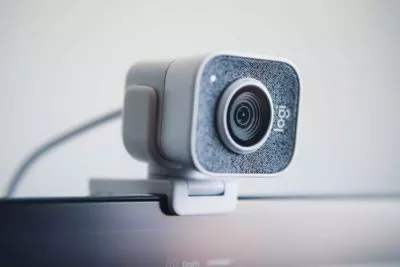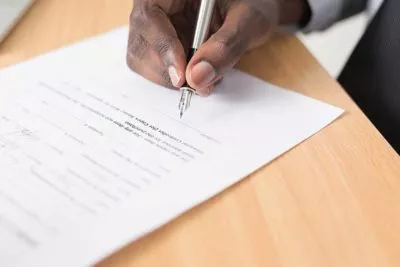
- Originally Published on August 7, 2024
DMCA Lawyers: When and How We Use DMCA Takedown Notices to Protect Your Content
As a content creator, there’s nothing more frustrating than finding your work used online without permission. But what can you actually do about it? That’s where DMCA lawyers and takedown notices come in. At Minc Law, we focus on helping creators like you fight back against copyright infringement. In this guide, I’ll walk you through exactly when and how to work with a DMCA lawyer to protect your content and your livelihood.
What Can a DMCA Lawyer Do?
A DMCA lawyer can help you protect your copyright online by filing takedown notices to remove infringing content. They’ll ensure your notices meet legal requirements, advise you on dealing with counter-notices, and help enforce your rights. If you find your content being used without permission, it’s often worth involving a DMCA lawyer to resolve the issue quickly and protect your work long-term.
What is the DMCA, and How Does it Protect Your Copyright?
The Digital Millennium Copyright Act (DMCA) is a United States law that helps protect copyrighted content in the digital age. It provides a framework for content creators and owners to get unauthorized copies of their material removed from websites and other online platforms. The DMCA covers a wide range of copyrightable content, including writing, images, videos, and music.
The DMCA aims to balance the rights of copyright holders with the realities of how content is shared online. It gives creators a relatively straightforward way to address infringement without necessarily having to go to court. At the same time, the DMCA includes provisions that protect Internet service providers from being held liable for their users’ copyright violations as long as they promptly remove infringing content when notified.
What Is A DMCA Takedown Notice?
A key tool the DMCA provides for fighting online copyright infringement is the takedown notice. A DMCA takedown notice is a formal request to a website operator or hosting provider to remove content that infringes on your copyright. If you find your work being used online without permission, you can file a takedown notice to request that the infringing content be permanently deleted.
You do not have to have officially registered your copyright with the U.S. Copyright Office to file a DMCA takedown notice. Any content you create is protected by copyright the moment it is put into a tangible form. However, you do need to be the copyright owner or an authorized representative to file a takedown notice.
What Are The Requirements For A Valid DMCA Takedown Notice?
For a DMCA takedown notice to be valid and legally enforceable, it must contain certain key information:
- Your contact information, including your name, address, and email address
- Links to the infringing content you want to have removed
- A clear statement identifying the copyrighted work being infringed upon
- A statement that you have a good faith belief that the content is not authorized by the copyright owner or the law
- A statement that everything in the notice is accurate
- Your physical or electronic signature
It’s critical to make sure your takedown notice contains all the necessary elements. If it doesn’t, the recipient isn’t legally required to take action, and your request may be ignored. This is one area where having a knowledgeable DMCA lawyer assist you can be extremely valuable. They can draft a proper notice and ensure it gets into the right hands.
What Happens After a DMCA Takedown Notice Is Sent?
Once you or your DMCA lawyer sends a takedown notice, here’s what typically happens next:
- The service provider notifies the user who posted the infringing content about the takedown request.
- The service provider removes the content promptly if they believe the notice is valid. There’s no set deadline, but reputable providers usually act within 24-48 hours.
- If the person who posted the content believes the takedown was a mistake or misidentified the material, they can file a counter-notice asking for the content to be restored.
- If a valid counter-notice is submitted, the service provider will notify you and give you 10-14 business days to respond.
- If you don’t take legal action against the alleged infringer in that timeframe, the provider may restore the content.
This back-and-forth process with counter-notices is another reason to consider working with a DMCA lawyer. In my practice, I have had clients come to me saying they have submitted DMCAs multiple times and have received no response and no action has been taken or that they have received a counter-notice and do not know how to proceed. A DMCA lawyer can step in to help make sure the matter is handled effectively through regular monitoring of the status of the DMCA notice and action taken on counter-notices received. That may mean determining whether the counter-notice is valid or simply a delay tactic. It may also mean escalating the matter to a lawsuit if necessary to keep the content down permanently.
When Should You Hire a DMCA Lawyer?
While it’s possible to file a DMCA takedown notice on your own, there are many situations where it’s wise to involve a lawyer who specializes in DMCA law. Here are a few common scenarios where I recommend working with an attorney:
- You’re dealing with a large-scale infringement of your content across multiple websites
- The website owner or service provider is not responding to your takedown requests
- You’re unsure how to properly format your takedown notice or where to send it
- The alleged infringer has filed a counter-notice, and you’re not sure if it’s valid
- Your content is highly valuable, and the infringement is significantly impacting your business
- You believe you may need to escalate the matter to a lawsuit
In my experience, trying to handle complex DMCA matters on your own can lead to mistakes and delays in getting your content removed. Even if you’re able to get the infringing material taken down initially, it may keep popping back up if you don’t have a long-term strategy in place. A DMCA lawyer can help you navigate the process efficiently and position you for success.
How Can a DMCA Lawyer Help You Protect Your Content?
There are several key ways that an experienced DMCA lawyer can assist you in protecting your copyrighted content:
- Ensuring your takedown notices are properly drafted and contain all legally required information to be enforceable
- Identifying who to send notices to and how to contact them, which can be trickier than it sounds
- Following up on your notices and monitoring compliance to make sure content actually gets removed
- Advising you on the validity of any counter-notices you receive and how best to respond
- Helping you understand your rights and options if the infringement continues or escalates
- Gathering evidence of the infringement that can be used in settlement negotiations or litigation if needed
- Developing an overall strategy for proactively protecting your content and enforcing your copyrights
Rather than spending your own time and energy trying to navigate the DMCA process, you can let your lawyer handle the heavy lifting and stay on top of managing many moving pieces effectively. They can take the burden off your shoulders while bringing the expertise needed for optimal results. This frees you up to focus on creating new content to grow your business.
What If Your DMCA Takedown Notice Is Challenged?
If the person who posted your content challenges your takedown notice by filing a counter-notice, don’t panic. Infringers use this common tactic to try to delay the removal of the content or get it reposted. However, just because they file a counter-notice doesn’t mean you’ve lost your ability to enforce your rights.
When you receive a counter-notice, the first thing to do is carefully review it with your DMCA lawyer. They can advise you on whether the counter-notice is properly formatted and raises any valid legal defenses to your infringement claim. In many cases, the counter-notice may be baseless and just an attempt to bully you into backing down.
If the counter-notice does appear to have some merit, your lawyer can help you weigh your options. These may include:
- Responding to the counter-notice with additional evidence of infringement
- Negotiating a settlement with the alleged infringer to avoid further legal action
- Filing a lawsuit against the infringer to keep the content down permanently
Your lawyer can advise you on the relative costs and benefits of each approach based on the specifics of your situation. The key is to have a strategy to respond to the counter-notice and show the infringer you’re serious about protecting your content.
Frequently Asked Questions About DMCA Takedown Notices
Do I Have To Register My Copyright Before Sending A DMCA Takedown Notice?
No, you are not required to register your copyright in order to send a takedown notice. However, registering can provide additional benefits if you end up suing for infringement.
How Long Does A Service Provider Have To Respond To My Takedown Notice?
Service providers are not under a specific deadline, but most reputable ones will remove the infringing content within 24-48 hours of receiving a proper notice.
Can I Send A DMCA Notice For Content That’s Not Identical To My Original Work?
Yes, a DMCA notice can still be appropriate if the infringing content is substantially similar to your copyrighted material, even if it’s not an exact copy.
What If I Accidentally Misidentify Content In My Takedown Notice?
If you send a DMCA notice in error, you should promptly contact the service provider to retract it. Knowingly submitting false information in a notice can lead to legal penalties.
Will Sending A DMCA Notice Stop The Infringer From Posting My Content Again?
Sending a DMCA notice can be effective for removing infringing content, but it does not prevent the infringer from reposting in the future. To deter repeat infringement:
- Send DMCA notices to all parties involved in hosting or linking to the content.
- If the infringer reposts, send a second DMCA notice citing the repeat infringement.
- Consistently monitor for and report future infringements.
- Warn the recipient that you are prepared to take further legal action if necessary.
- For severe cases, consult a DMCA attorney to explore additional legal remedies.
Protect Your Valuable Content with Minc Law
Dealing with copyright infringement is stressful, but you don’t have to do it alone. By working with an experienced DMCA lawyer, you can swiftly and decisively remove infringing content and protect your work from further misuse.
The attorneys at Minc Law have helped hundreds of creators successfully navigate the DMCA process. Our team is dedicated to defending your rights and giving you peace of mind. If you’re ready to put a stop to infringement and safeguard your content, we’re here to help.
Don’t let content thieves profit off your hard work. Schedule a consultation today to discuss your options with a knowledgeable DMCA attorney and start fighting back.
Reach out today by calling us at (216) 373-7706, or by filling our our online contact form.
Get Your Free Case Review
Fill out the form below, and our team will review your information to discuss the best options for your situation.
This page has been peer-reviewed, fact-checked, and edited by qualified attorneys to ensure substantive accuracy and coverage.


